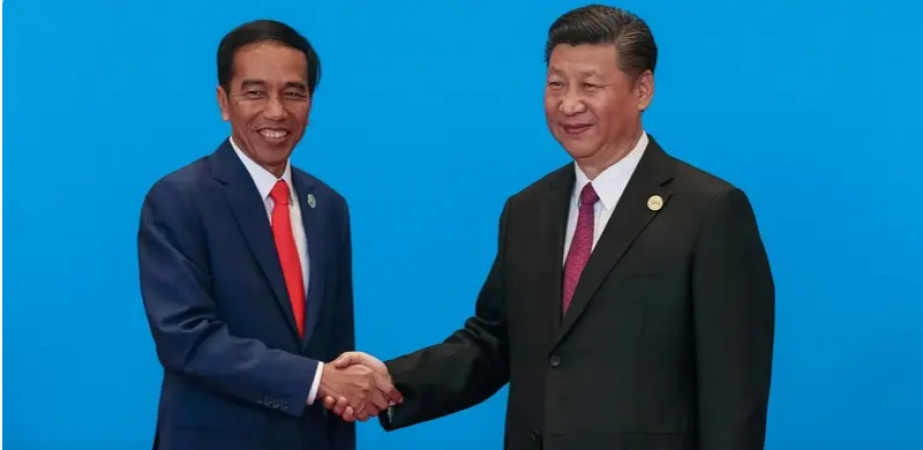
Indonesia: In the northern Natuna Sea, China is embroiled in a maritime conflict between states that are not waging a full-fledged war against Indonesia. China pursues these goals knowing that Indonesia will not respond appropriately.
Between December 2019 and January 2020, the most recent North Natuna Sea crisis saw Chinese fishing vessels enter Indonesia's Exclusive Economic Zone with the support of the Coast Guard and Maritime Militia (EEZ).
According to Indonesian maritime law enforcement officials, these incursions have not stopped since then; Rather, they have been given less attention now. After a Chinese survey vessel spent seven weeks mapping the sea floor inside Indonesia's EEZ, China proceeded in August 2021.
Even though nine Indonesian Navy and Coast Guard patrol boats were witnessing the encroachment, while reportedly being asked not to intervene, Jakarta has remained largely silent on the issue. According to a Reuters report from December 2021, China's demand that Indonesia stop drilling in the area has effectively crossed Indonesia's "red line".
According to China's interpretation of "informal understanding" with Jakarta about the maritime zone in the 1990s, it believes there are "overlapping maritime rights" with Indonesia.
However, Beijing's actions are less about escalating the legal battle than they are a silent strategic effort to make Jakarta recognize China's maritime rights, either indirectly or unintentionally. China now feels more comfortable pushing borders as it controls important strategic areas in the South China Sea.
The hegemonic powers are expected to dissipate unless they are driven out of the region to win or face substantial opposition, but Indonesia has not resisted. Even though officials claim he expressed his displeasure privately, its diplomatic response to the incident was silent. In addition, there was a random, inconsistent and largely symbolic security response.
Indonesia's policy makers are uncertain about the rationale behind retaliation against China. Some think it is impossible to convince China to give up its "nine-dash line" claims in the South China Sea.
Others, such as Indonesian President Joko Widodo, favor crisis management over crisis prevention to put strategic noise on their domestic agenda. Many people think that China's actions are only a matter of law enforcement and not a strategic issue.
The first sign of a failed strategy is a lack of clarity. Indonesian policy makers opted for a tacit response, instead pursuing the specific and achievable goal of preventing China's illegal incursions into the North Natuna Sea. Meaningless gestures such as holding a cabinet meeting on the warship could be marketed as "strongly asserting" Indonesia's sovereignty domestically.
Indonesian policymakers' insistence that their nation does not lay claim to the South China Sea disputes is partly to blame for this dirty thinking.
Indonesia and China have close bilateral relations, and international law recognizes Indonesia's claim to the South China Sea. As a result, Indonesian policymakers are more likely to view Chinese incursions into the gray zone as temporary issues with maritime law enforcement than as part of a larger strategic gamble.
The lack of strategic cohesion prevents the integration of a broad range of diplomatic, military and economic means into a full-scale pushback against Chinese encroachment due to a lack of clarity.
Instead, by separating its bilateral relations with China from the South China Sea conflict, the North Natuna Sea issue, and great power politics, Indonesia divides the issue. Given the complexity of those issues and the fact that China is currently the foreign policy issue that causes the most domestic polarization, this approach seems clearly justified.
The elites in Indonesia are also becoming more and more dependent on China's private benefits and public goods, especially those delivered during the pandemic. However, Indonesian strategic policy is becoming less open as a result of their growing concern about public scrutiny of their talks with China.
When Indonesia lacks transparency, China's gray zone strategy is successful. The range of options for peaceful surrender or a fisheries war does not occur to policymakers.
Failure of peace talks is being blamed on Putin and Zelensky's refusal to meet
Grand Forks' attempt to vote on a Chinese project is rejected by a North Dakota court
China has fewer options due to the US Federal Reserve's pledge on interest rates